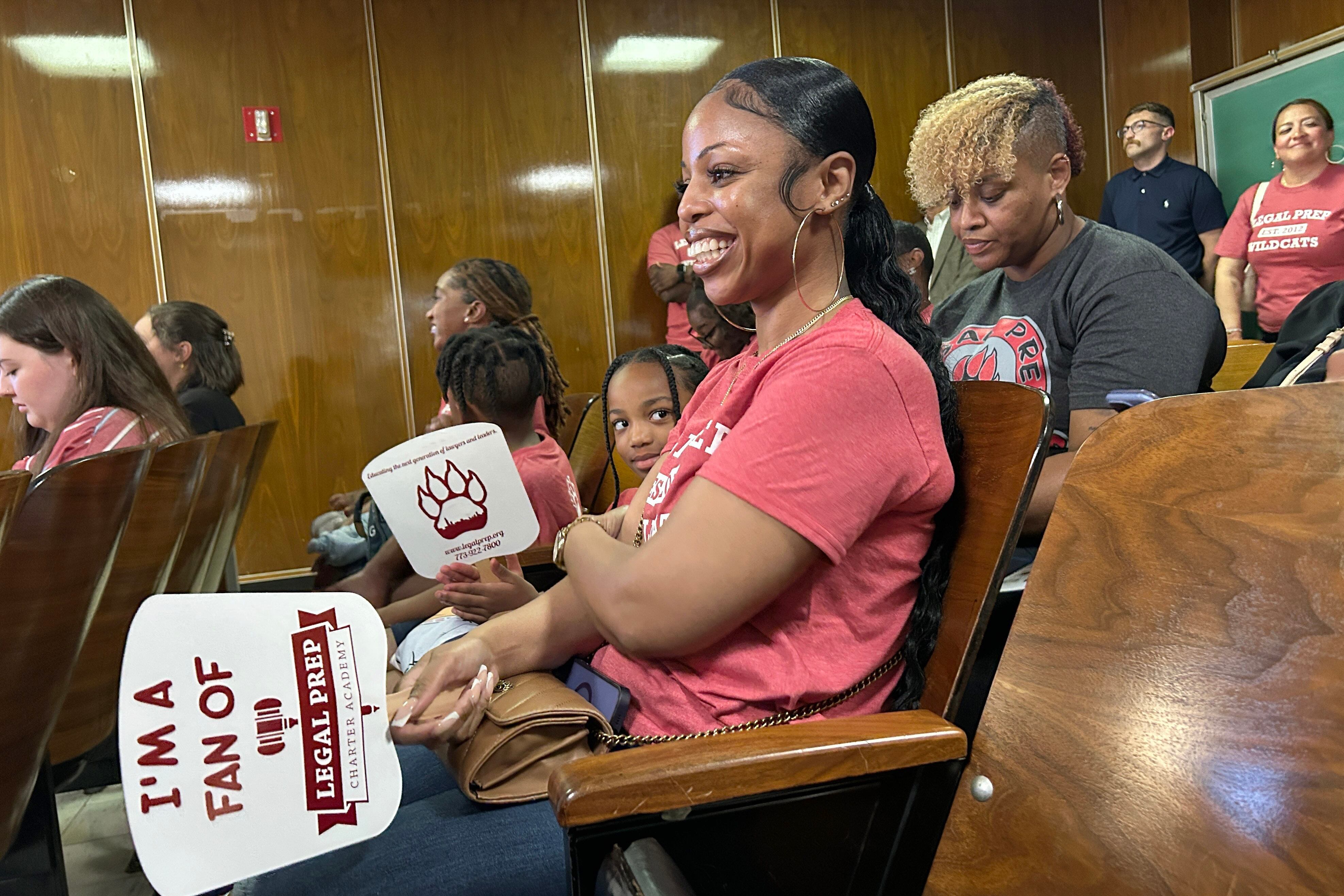Sign up for Chalkbeat Indiana’s free daily newsletter to keep up with Indianapolis Public Schools, Marion County’s township districts, and statewide education news.
The Indianapolis Charter School Board approved a legal-themed, college prep charter school on Tuesday, marking the first new school to open in Indianapolis since the end of a heated legislative session this spring that gave charter schools more local funding.
Legal Prep Charter Academy, which currently operates one high school on the west side of Chicago, would open in 2026 with 225 students in 6th and 9th grades, according to its application. The enrollment would grow to 825 in grades 6-12 by 2029-30.
The addition of another charter school is the latest change in the city’s evolving educational landscape. Beginning in 2028, charter schools — which have grown as Indianapolis Public Schools has shrunk — will receive a portion of property tax funding that has historically been reserved for traditional public schools. The legislative change made this year came amid tense opposition from supporters of traditional public schools, while IPS itself called for a moratorium on new schools in its boundaries.
Lawmakers did write into law a prohibition on new charter schools from July to December of this year, except for those schools approved by the mayor’s office.
The 6-1 vote to approve the school came with written support from current Legal Prep students and staff in Chicago.
The school hopes to open near the Monument Circle downtown and build partnerships with the city’s nearby legal community, according to its application. But leaders plan to recruit students across multiple zip codes, particularly those who are from low-income households and historically underserved neighborhoods.
The school faced a variety of concerns and questions from board members, particularly about its ability to recruit enough students and survive financially.
Staff, however, stressed the existing relationships they already have built with a variety of community organizations and law firms. They also pointed to experience at their school in Chicago, which opened in 2012.
“We went through years in Chicago where we had midyear budget cuts, where we had the rug pulled out from under us (in the) fourth quarter,” CEO and co-founder Sam Finkelstein told the board. “We’ve seen a lot when it comes to the way finances can change in a heartbeat, and what we do is we plan conservatively, we fundraise aggressively, and we stockpile for a rainy day.”
In Illinois, the school has a “commendable” rating in the state’s school accountability system — the second highest. The school also boasts a suspension rate under 2%, with only one expulsion since 2021, according to its application.
Legal Prep emphasizes social-emotional learning and a low student-to-counselor ratio that allows staff to adequately respond to student needs and trauma, the school said in its application. The proposed ratio of 70 students for one counselor provides a much lighter case load than the recommended 250 students per counselor.
Amorrie Parchman, an incoming senior at Legal Prep in Chicago, told the board she appreciated the exposure to the legal field and the opportunity to participate in groups such as National Honor Society.
“Being there I realized that if you work hard, you will receive numerous benefits in the end,” she said.
Marquan Morrison, a staff member who was in the school’s first graduating class of 2016, said he’s never doubted the belief and investment he’s received from the Legal Prep family.
The school taught him skills and gave him lasting relationships that ultimately helped him serve his community, he said.
At the Tuesday meeting, outgoing charter board member Andrea Neely cast the sole opposing vote after stressing to school officials that the city’s educational community is approaching a very difficult time. A state-mandated group known as the Indianapolis Local Education Alliance is tasked with providing lawmakers with recommendations on how both charter schools and Indianapolis Public Schools can use buildings and transportation efficiently.
“The model is amazing, but again it’s coming at a time of challenge,” she said.
Amelia Pak-Harvey covers Indianapolis and Lawrence Township schools for Chalkbeat Indiana. Contact Amelia at apak-harvey@chalkbeat.org.





